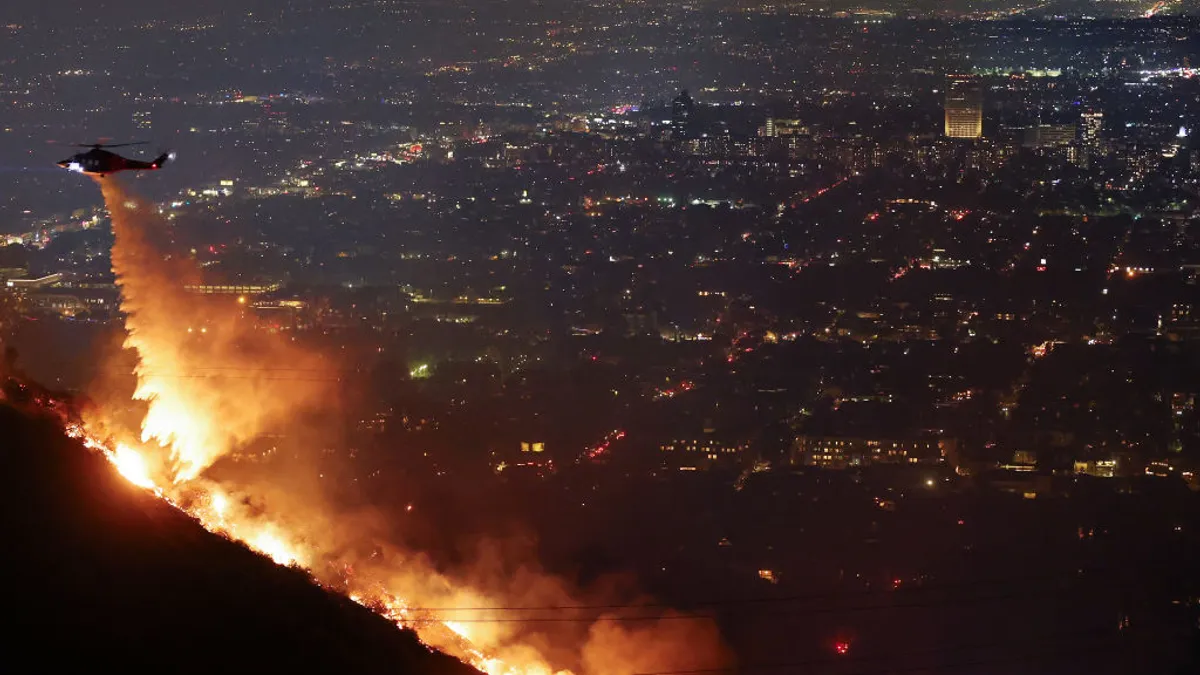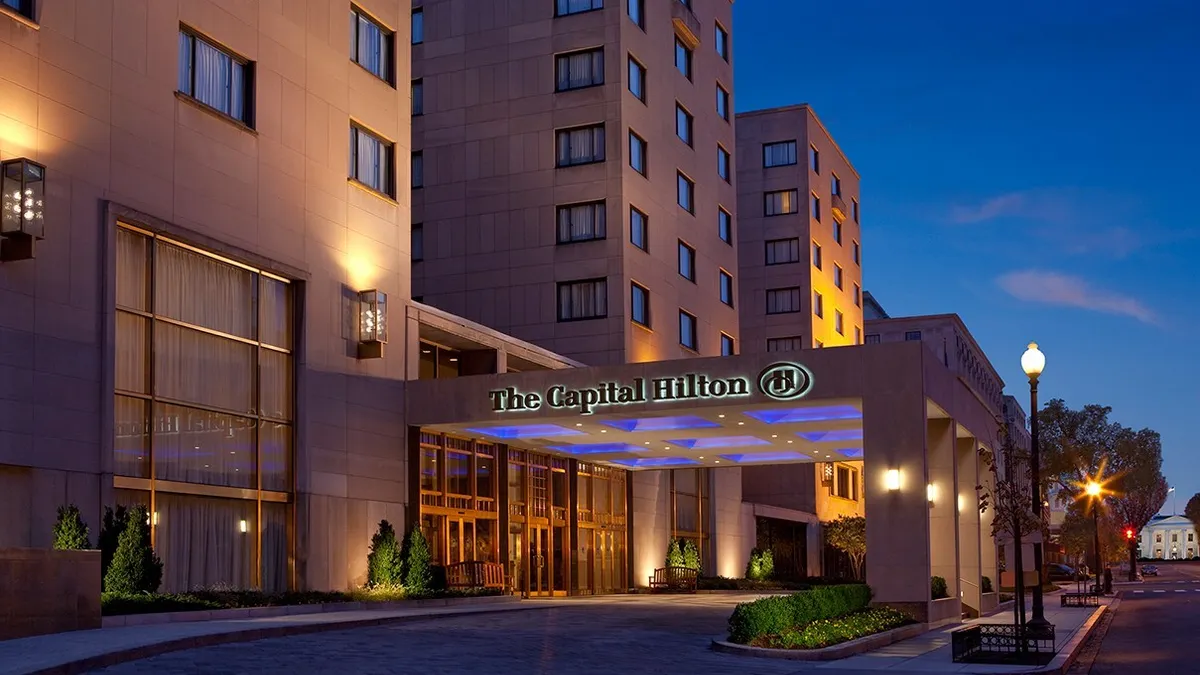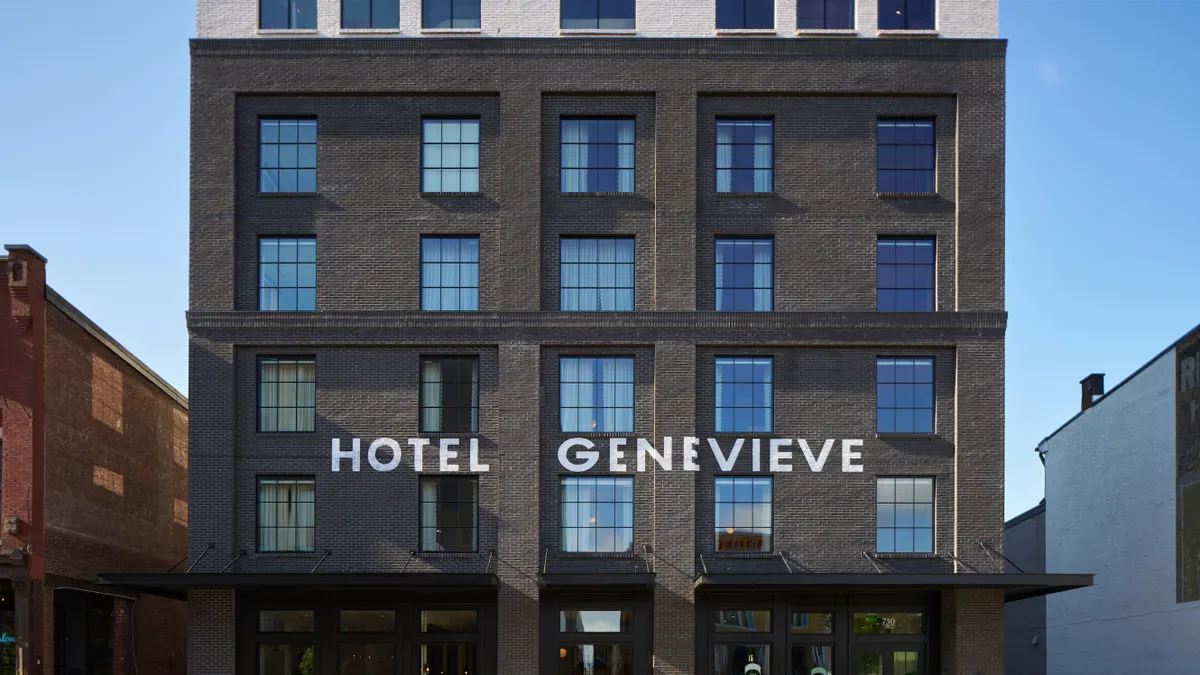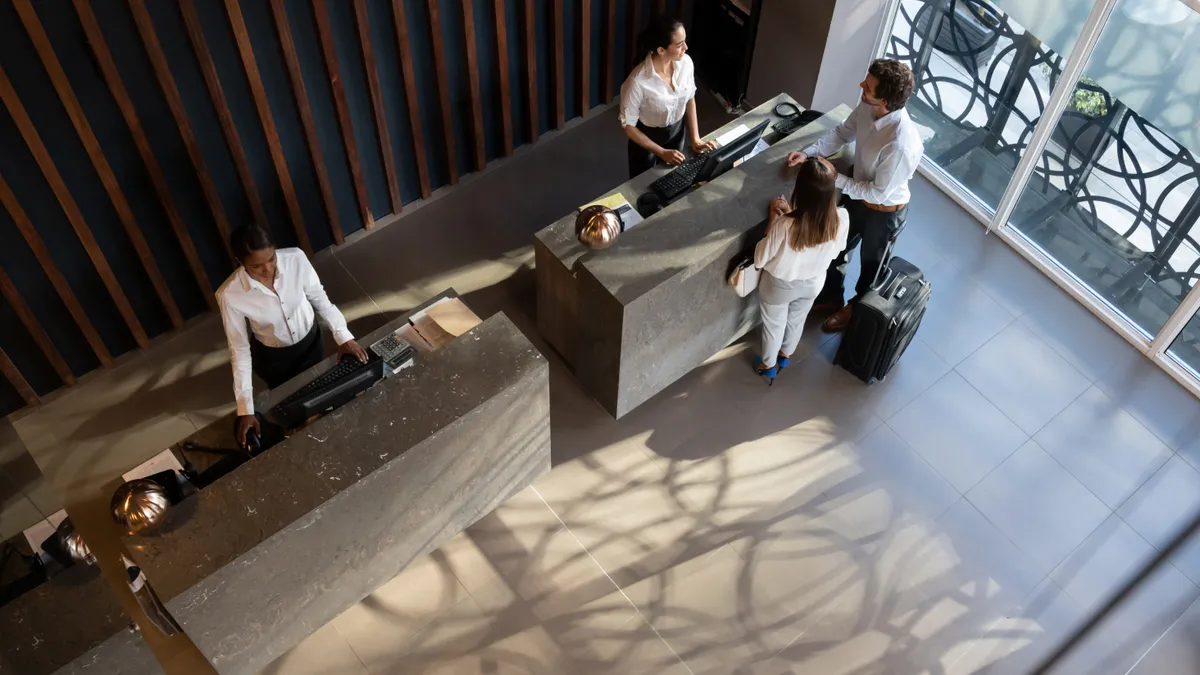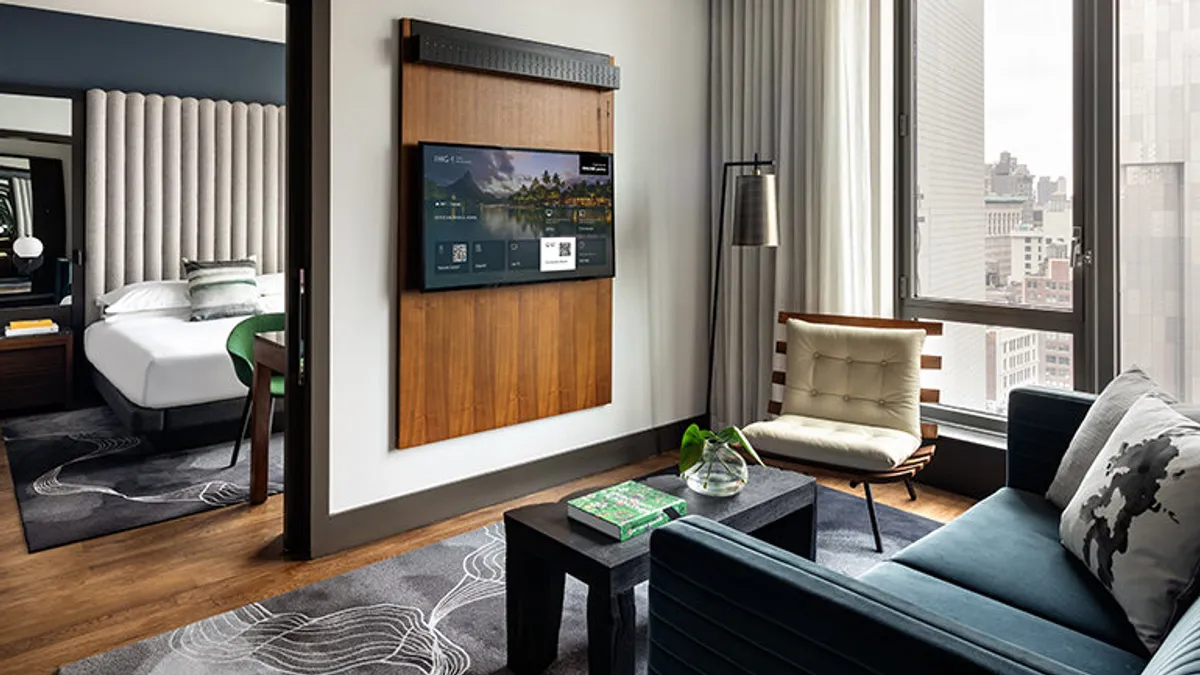As wildfires tear through the Los Angeles area this week, thousands of residents have been forced to evacuate their homes. In the wake of the disaster, hotels are providing them shelter.
The hotels’ response to wildfires highlights the crucial role hospitality providers play during emergencies — and, in turn, how emergencies impact hotels’ business.
“The impact of this devastation is far-reaching, but it is during moments like these that the hospitality industry shines,” said Anna Blue, president of AHLA Foundation, on Linkedin. “This is when we step up and show up.”
Hotels filling up
As of Friday morning, 180,000 people across the area were under evacuation orders, according to NBC News.
With so many people seeking somewhere to go, many of Los Angeles’ most iconic hotels have filled up. As of Thursday, West Hollywood’s historic Sunset Tower Hotel was “booked to capacity,” according to The New York Times. The Kimpton La Peer Hotel “quickly filled up,” per The Hollywood Reporter. And luxury properties the Beverly Hills Hotel, The Four Seasons Beverly Hills and the Peninsula Hotel were sold out by Wednesday, The Daily Mail reported.
Still, as of Thursday, a spokesperson for the Hotel Association of Los Angeles told Hotel Dive that more than 70 hotels had availability, many of which were providing discounts for guests displaced by the fire.
“We are devastated by the destruction of the fires raging across the Los Angeles region,” said the association’s Board of Directors in a statement Wednesday, noting that many area hotels were not only housing evacuees, but also taking in their pets. Many hotels are also donating bedding and toiletries to temporary shelters, the statement added.
Hotels’ responsibilities
Though demand for hotels — even pricey luxury ones — is now high, hotels are prohibited from taking advantage of a disaster by raising their rates.
“As our state and our industry copes with the fire's impact, we must be mindful of the needs of our communities and avoid any form of price gouging within the lodging industry,” the California Hotel & Lodging Association told its members in an internal communication obtained by Hotel Dive.
For the 30 days after a disaster emergency is declared, the message continued, “it is unlawful for a person to sell or offer a hotel room for a price more than 10 percent above the price charged immediately prior to the declaration.” Hoteliers are still permitted to make seasonal, regularly scheduled adjustments.
Meanwhile, hotels are remaining flexible with reservations. A Hilton spokesperson told Hotel Dive that the company’s properties in the area are open and operational, and that modification and cancellation penalties can be waived for stays with arrivals through Jan. 10.
The Los Angeles Tourism and Convention Board is maintaining a list of open hotels and the properties’ discount codes for evacuees.
Hotels’ role in emergency response
In 2023, it happened in Hawaii, and in 2024, in Florida — hotels stepped up to provide emergency assistance in the wake of dangerous weather events.
After wildfires destroyed buildings in Maui, hotels provided shelter to displaced residents and first responders, with support from both the American Hotel & Lodging Association and the Hawaii Hotel Alliance.
For months after tragic events pass, hotels often host people assisting with reconstruction and recovery efforts. In a third-quarter earnings call, Wyndham Hotels & Resorts CFO Michele Allen said Hurricanes Milton and Helene led to a 10% occupancy boost in impacted states.
“Long-term, undamaged businesses may benefit from increased demand from construction workers during recovery efforts in the area, and hotels and long-term rentals may see an increase in business due to people being displaced from their homes,” said Natalie Ambrosio Preudhomme, associate director of commercial real estate research at Moody’s.
That means hotels could see heightened occupancy long after the fires subside. Blue said hotels’ response highlights “the power of hospitality to make a difference.”
“This industry has always been about people — about showing up for communities during the hardest of times,” she wrote. “The resilience, generosity, and compassion of the hospitality workforce are unmatched, and we are so proud to see how our industry leads with heart in moments of crisis.”



